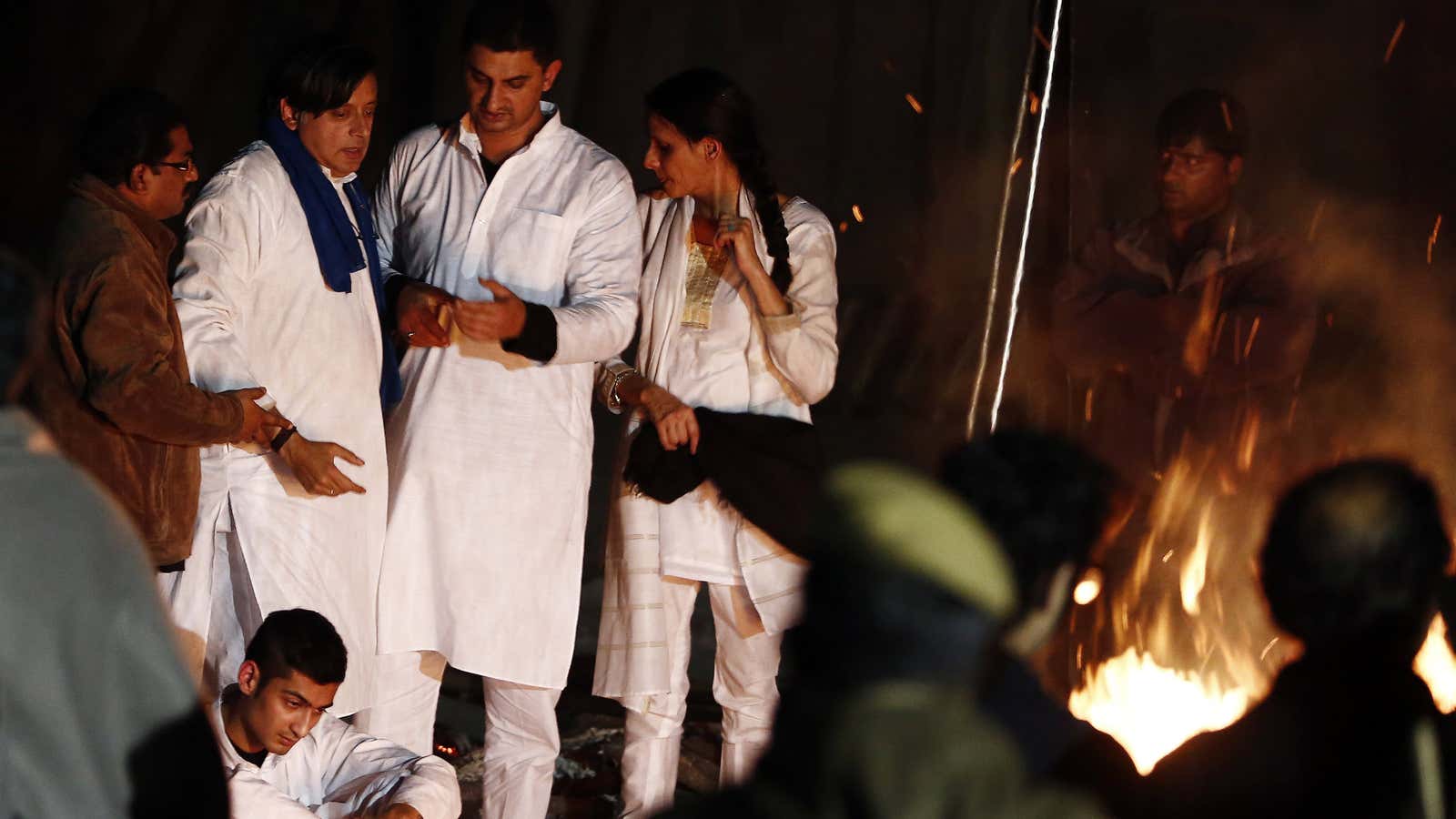On 1/15, Sunanda Pushkar, the wife of Indian minister Shashi Tharoor, took to his Twitter account to post lovesick messages that she claimed were written to him by Mehr Tarar, a Pakistani journalist.
On 1/16, the Economic Times carried a sensational disclosure by her: “I took upon myself the crimes of this man during the [Indian Premier League].” In 2010, Tharoor had resigned from his post in the government amid accusations that Pushkar and he had helped a new franchise in the lucrative cricket league.
On 1/17, Pushkar was found dead in a hotel room at the Leela, a hotel in south Delhi. It wasn’t long before Twitter, a wellspring of angst for India’s most high-profile journalists, was suggested as one of the possible reasons behind Pushkar’s demise. One channel asked: Was it suicide or murder? After Pushkar published the first messages, Tharoor claimed his account had been hacked. Twitterers, as they do with these things, rallied immediately:
and:
Indian media was less critical about its own practices. Shortly after the Economic Times piece, the news channel NDTV got Pushkar on the phone for an interview. They didn’t ask her about the “crimes of this man.” At one point during the live phone conversation, when Pushkar said she regretted choosing silence during the cricket controversy, the interviewer changed the subject, “Ma’am, you do realize you’re live on NDTV? Also, aren’t you worried the BJP [the party in opposition] will take up this issue?” The channel’s concern for the minister’s career, not the details of Pushkar’s revelation, was dismaying.
There are plenty of other examples of journalists who shirked their duties. In the minutes after Pushkar’s death became public knowledge, Barkha Dutt, NDTV’s group editor, said that Pushkar had told spoken with her on 1/15 about issues including Tarar and the cricket league. (“…not really private [conversation] actually, as [Pushkar] repeated verbatim to Express, Economic Times,” Dutt tweeted.
Dutt said she advised Pushkar to speak with a confidante instead. A celebrated journalist known for intrusive reporting at the scene of major incidents, Dutt took the editorial judgment to ignore Pushkar’s frank revelations about a sitting union minister.
On its part, CNN-IBN brought out Sagarika Ghose, a senior editor, who had met Pushkar socially. She said that Pushkar had, “off and on, over the past month, spoken about this particular liaison [between] her husband Shashi Tharoor and the Pakistani journalist… she was very unhappy about it.” Yet, until Pushkar put out the messages by herself, few people knew about the brewing trouble.
Media outlets occasionally hold back information, of course. There are often debatable, yet justifiable, reasons for doing so. But the manner in which Pushkar’s admissions were addressed and ignored by some of India’s most prominent journalists raises, once again, serious questions about seemingly cozy relations between reporters and the political class. They had their chance to ask Pushkar about the “crimes.”
Now they don’t.
In the process, the media have added more fuel to the popular belief that journalism in India isn’t done in the public interest as much as in the interest of the rich, the powerful, and the political.
Follow Rahul Bhatia on Twitter @rahulabhatia. We welcome your comments at ideas@qz.com.
Read this next: Over last 86 days, Shashi Tharoor tweeted about his wife 33 times. She of him: 443
